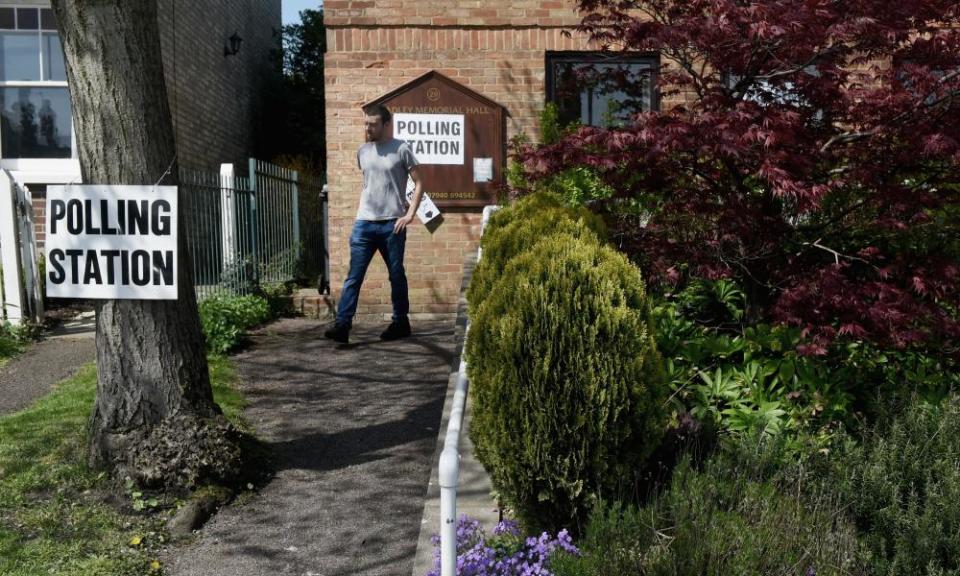Voter ID plan is a thinly veiled Tory power grab

I am the chair of the Royal National Institute of Blind People, although I write in a personal capacity. I am extremely concerned that government plans for voter ID will create additional barriers to blind and partially sighted people, in the exercise of our democratic right to vote (More than 2m voters may lack photo ID required under new UK bill, 11 May).
The government has reported that pilots, where voters were asked to produce either a passport or driving licence at polling stations, were successful. However, this is not the whole story: blind people were informed of the pilot in letters they could not read, so turned up with no photo ID and were then denied the vote. This is unacceptable.
Poverty runs higher among blind and partially sighted people than many other groups and so we are among the least likely to possess a passport, as foreign travel is often not a priority. Since we are never the designated driver, we are exclusively a driving-licence-free zone. This leaves the travel pass as about the only other form of photo ID at our disposal, which the government has rejected. It is no less secure than a driving licence, so I fail to see why. The low number of convictions for voter fraud seems to have yielded a disproportionate response, with a real threat of disenfranchisement to those already facing the greatest barriers.
Anna Tylor
Chair, Royal National Institute of Blind People
• Your front-page article setting out the serious effects of insisting on voter ID quotes government research. There is, however, no need to for such research to realise its potential damage. We have clear evidence of election turnout in the 18 Northern Ireland constituencies before and after the introduction of compulsory ID.
The last election there without voter ID was in 2001, and in the first election after its introduction, in 2005, turnout was down in every seat. Nor has the passage of time improved the situation: at the last election in 2019, the average reduction compared with 2001 was approximately 6.5%. That is a massive reduction in voting participation.
Michael Meadowcroft
Leeds
• Your print headline is “Warning: Johnson’s ID plan risks freezing out 2 million voters”. I think you meant “Johnson’s ID plan intends to freeze out 2 million non-Tory voters”.
Dave Pollard
Leicester
• Voter ID cards? Wouldn’t voter IQ cards be more appropriate (Johnson the civil libertarian wants to have his voter ID card and eat it, 11 May)?
Enid Gibson
Walton-on-Thames, Surrey
• I see no objective rationale in plans to change from supplementary voting to first past the post in mayoral elections, as described in your report (9 May). Do they think voters are too stupid to understand the idea of ordered choice? The use of second-choice votes to reach a result acceptable to a majority allows a degree of consensus sadly missing from our recent political discourse. Why should this be dismantled?
The only reason to do this seems to be to manipulate the system, hoping to favour Conservative candidates. A truly progressive government would be extending proportional representation.
Together with the introduction of ID requirements to counteract virtually nonexistent voter fraud, we see a government making serious encroachments into our democracy. These plans would leave even more people feeling unrepresented – surely a dangerous outcome.
Fiona Mathers
Wakefield
• Have an opinion on anything you’ve read in the Guardian today? Please email us your letter and it will be considered for publication.

 Yahoo Movies
Yahoo Movies 